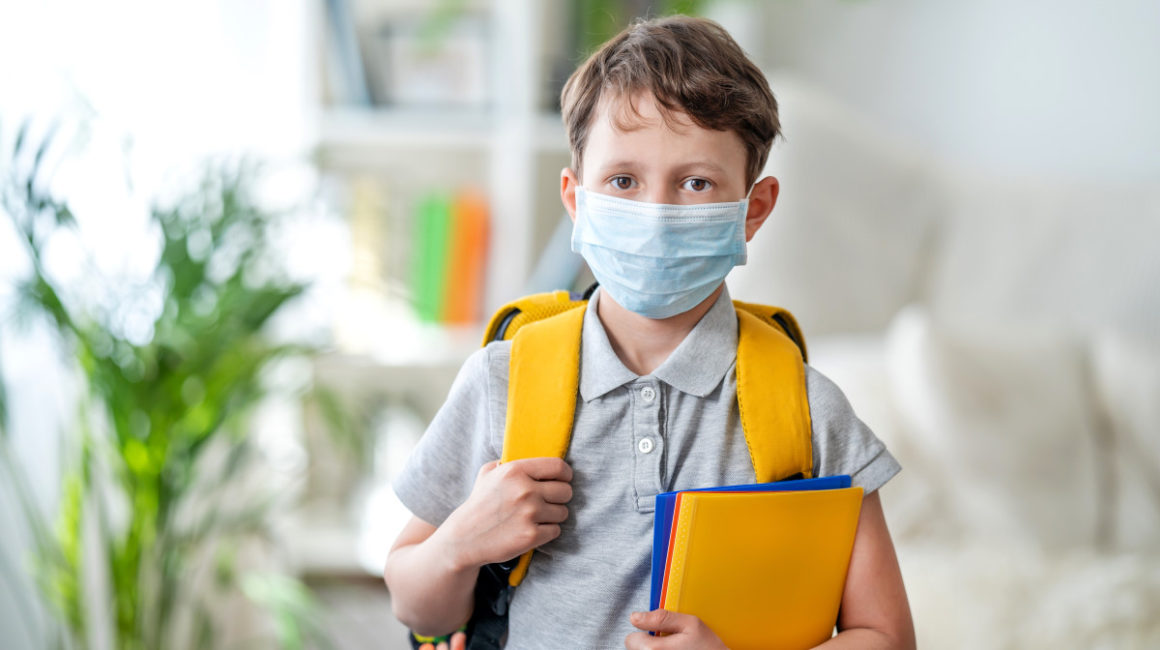
The start of a new school year is an exciting event for many kids.
For generations, children have been dealing with anxiety surrounding school activities, however kids today have to deal with the additional stress of social media, increasing academic expectations, and much more.
With the introduction of virtual learning due to the Covid-19 pandemic, many children have experienced a loss of social skills, making returning to schools after over a year of being at home all the more anxiety-inducing
The prevalence of anxiety among children between the ages of 6-17 has been increasing rapidly, with a small percent of these kids refusing to go to school because of their uneasiness.
Learning how to cope and manage school-related anxiety will help make attending class a more enjoyable and stress-free experience.
What is School Anxiety?
School anxiety can look different for each student’s age group. Whether it’s separation anxiety, social anxiety, or generalized anxiety, it can all result in school avoidance and or refusal.
Separation anxiety is most prevalent in preschool students, as they’ve rarely spent time away from their mom and dad up till that point. Kids regularly act out by having temper tantrums during school drop-offs or having trouble relaxing throughout the day.
Elementary students can experience all the above types of anxiety. Children at this age will begin to worry about academic expectations and may have not yet developed age-appropriate social skills that allow them to make friends.
Middle and high school students begin to develop a social hierarchy that can put stress on their friendships and relationships. They may also be juggling problems in their home lives alongside other responsibilities such as getting good grades for college.

Signs and Symptoms of School Anxiety
Each person experiences situations differently, and school anxiety is no exception.
Parents and teachers may notice their children or students acting in the following ways:
- Struggling to pay attention
- Feeling ill frequently, which can sometimes be interpreted as “faking illness”
- Avoiding eye contact with everyone
- Freezing or becoming nervous when called upon during class
- Keeping to themselves and not socializing with other students
Children can exhibit some or all of the previously mentioned signs, although it’s important to note that having school-related anxiety is more common than it seems. If close attention is paid, you’ll notice a good portion of the class will likely present one or more of these signs.
Coping with School Anxiety
Constantly feeling uneasy can cause students to have trouble concentrating during lessons, which might make them fall behind on their studies.
 While all humans feel anxiety, knowing when to seek help and learning different strategies to cope with the excessive amount of worry and tension is important in maintaining a healthy mental state.
While all humans feel anxiety, knowing when to seek help and learning different strategies to cope with the excessive amount of worry and tension is important in maintaining a healthy mental state.
Knowing a few breathing exercises can be incredibly helpful when you’re feeling overwhelmed. Deep slow breaths allow the brain to function at full capacity, while also developing a steady breathing pace.
Staying still or having to sit for long periods of time can bring about feelings of unease and stress. Whenever you feel like your mind is racing and you’re about to burst, take a break and go outside. A change of scenery and being surrounded by nature can make all the difference.
Take the opportunity of being outside or in a quiet space to do a little exercise. Taking a movement break by either doing some yoga poses or a few jumping jacks is perfect for anyone looking to release negative feelings.
Youth Counselling to Manage School Anxiety
Is your child reluctant to go to school and constantly making excuses on why they can’t go?
Wanting to avoid social situations is a common sign that a child might be struggling with school-induced anxiety. With increased expectations surrounding academics and socialization, students are becoming more stressed about leaving the house.
Youth counsellors provide the necessary support and strategies needed to help children manage school anxiety. Our professional counsellors strive to provide our clients with a welcoming and relaxing atmosphere.
Reach out to us to learn more about our youth counsellors and find the right fit for you today.
